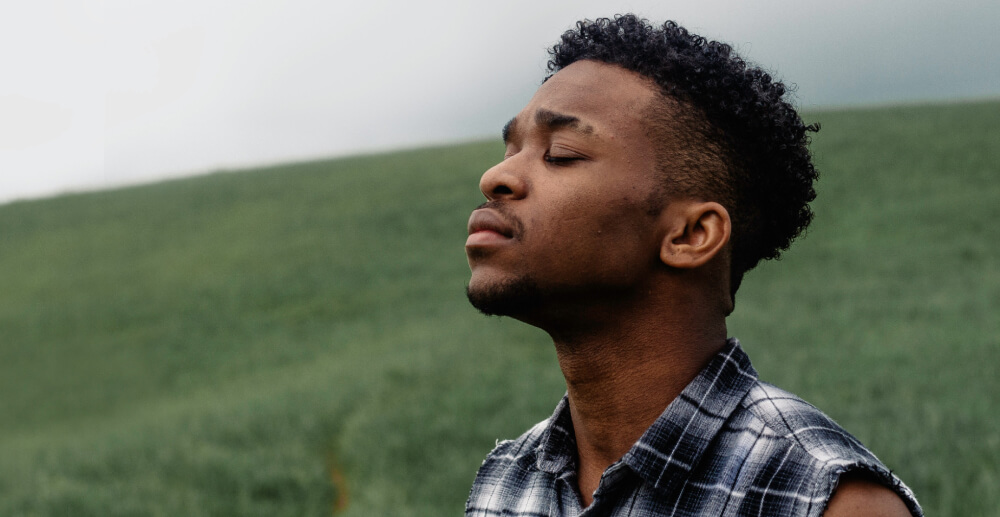As a person in long-term recovery, I’ve encountered many challenges over the last 12 years that have made me question how exclusive we can be as a recovering community. My intention is not to cause division in writing this but to validate the experiences of those who have been silenced for speaking their truths and those who have been diminished for challenging outdated ideals. While many feel part of it, there are equally thousands more who have felt excluded from recovery spaces and, significantly, from the decisions about us that affect us.
I want to take this opportunity to recover out loud by centering non-dominant voices.
A darker side of recovering out loud: Problematic communication
Recovering out loud—being open and public about my history and recovery—is an opportunity to practice principles we so often preach, like humility, and to consider how we collectively achieve our common goals, like sharing our stories to fight the stigma of substance use disorders. But here’s the thing: recovering out loud doesn’t happen in a silo. What we say and do affects others and can have a dark side. We cannot fight stigma without cleaning our own house and using self-reflection and humility to observe how our voices may harm others.
Some of the problematic ways I’ve observed people recovering out loud include:
- Dominant language: Folks share their stories and promote their ideals of what recovery should look like, and this can influence how we think about recovery. For instance, using phrases like “clean and sober” and other 12-step rhetoric such as “meeting makers make it,” and unless you’re actively in a program, it will lead to “jails, institutions, and death.”
- Keyboard warriors: By this, I mean those people who tear down others on social media for their self-defined recovery pathways because it doesn’t look like ours. Like declaring someone isn’t sober if they smoke weed, or resorting to evaluating the strength of a person’s recovery, and even worse, being so hateful that they have wished relapse on people.
- Thinking we’re God: This means giving out the “right” directions to people on how they should recover, online, in recovery, and in other public forums. When we fall to the delusion that we’re God, we imagine we know what is correct for other people and aren’t shy about saying so.
- Taking our own power away: This happens when we advocate for greater pathologization of substance use disorder by creating a spectrum to describe the severity of use.
When we recover out loud in these ways, we (perhaps indirectly) can invalidate people who are also in recovery but walking a different path, like folks who moderate and those who use medication-assisted recovery. We also imply that people who use drugs are “dirty” or “bad” instead of people like us, deserving of services. Let’s not forget that recovery is harm reduction! People who use drugs are just as deserving of community, support, and the other principles we practice.
What troubles me about tearing down others who walk a different path isn’t just the consequent invalidation of others; it is the glaringly obvious sign that the speaker’s recovery is so fragile that they think (maybe unknowingly) view someone else recovering differently as a threat to their recovery. It isn’t. Ironically, the real threats to our recovery are primarily our own making.
A darker side of recovering out loud: Sponsors who overstep
In 12-step groups, a sponsor is the person who guides you through the program of recovery. The idea is that a person who has similar experiences will be able to understand and guide you as you progress through the steps. At the best of times, a good sponsor is a sounding board, a mentor, and a nurturing part of the recovery journey.
However, the dark side of sponsors can crop up when they misrepresent the program and believe they have the power to direct their sponsees’ lives. In my five years attending 12-step programs, I encountered some truly awful experiences with sponsors, including:
- I was screamed at on the phone because she didn’t agree with something I’d said. She then carried on even though I was audibly crying.
- My sponsor’s sponsor (some say grand-sponsor) took it upon herself to create a hierarchy by having the people sponsored by her sponsees take direction from her. She’d ask me to call her every day, call her before making decisions, and gaslight me when I didn’t obey her demands. She also proudly shared stories of asking sponsees to run errands for her.
- I was told that I didn’t belong in Alcoholics Anonymous and that I needed to go to Narcotics Anonymous, even though I was seeking help for problematic alcohol use (and even though the program states that the only requirement for membership is a desire to stop drinking).
- More people than I wish to count have been told not to take their mental health medication—dangerous medical advice that they were not qualified to give. I also had a friend who came from that school of thought who later took their life. An old timer told me directly that he refused to sponsor people who take mental health medication “because it will ruin their spiritual experience”—this was in my first three weeks of recovery.
- I was told that I would go through the steps a fifth time just because my sponsor said so, even though I’d just landed in a different country, was five years in recovery, and didn’t feel the need to do that.
Of course, not all sponsors are like this! Many people have had wonderful, nurturing, and healing experiences with their sponsors. I, too, have had two loving, generous sponsors in addition to these awful experiences. But my negative experiences aren’t outliers, either. I know of many other horror stories. My point here is not to tear the sponsorship model down but to shine a light on it so that we check ourselves when sponsoring or mentoring others.
One way we threaten people’s recovery—and I’d argue a sense of safety at times—is by behaving outside of the scope of sponsorship. The only role of a sponsor is to guide someone through the steps. Sadly, that purpose has been greatly diluted over the years.
How we need to be more inclusive
For me, recovery is about breaking free not just from the confines of substance use but from dysfunctional family dynamics, from the stereotypes that people hold of people with substance use disorder, and also from the stereotypes we have about each other.
As a Queer, fat, autistic, disabled woman in recovery, I know all too well how some marginalized communities can be divisive instead of a place of support. In the LGBTQIA+ community, biphobia and transphobia are rampant, and yet we all face bias and discrimination from people outside of our community, too. And it can be even worse if you’re an LGBTQIA person and in recovery.
I can’t help but wonder what Shauntelle Hammonds‘s life as a Black trans woman in recovery might have been like if she’d had more support and validation. My friend Dr. Kristine De Jesus couldn’t describe Shauntelle’s efforts better, “Shauntelle Hammonds was a tireless advocate for culturally relevant and welcoming spaces for students of color and trans students in recovery.” That was the legacy of Shauntelle: she wasn’t afraid to speak the truth and to challenge the dominant voices in recovery. She called for accountability. She highlighted gross inequities in our community; she put in the labor of building up recovery organizations only to be discarded when becoming “too outspoken” or not following the recovery pathway they approved. She had the organization she built herself stolen from her when she was seeking help for her mental health.
Is this really who we have become as a community? We call for inclusivity but overlook the people who need us the most.
I hope we recognize the opportunity to reach out the hand of recovery not just to the newcomer but to those who live outside the dominant ideologies of recovery.
Some ways to be more inclusive of our recovery peers
During my writing career, I’ve come to challenge several exclusive, divisive, and harmful beliefs that separate us as a community. We deserve to come together, support one another, and leverage our unique experiences for what we all want to achieve: make recovery more accessible to all and fight the stigma associated with substance use disorders. We can do that by understanding our nuances, celebrating those differences, and making space for everyone. We do that by holding more inclusive beliefs, like:
- We are in recovery if we say we are: We must accept, without question, that someone is in recovery if they define their identity in this way. As peers, we are not the DSM-5, and so we don’t need that level of pathologization or medical gatekeeping in our community.
- You do not have to follow a 12-step or any other program for a valid recovery. We don’t get to decide how someone recovers.
- Abstinence is not the gold standard of recovery: There is no hierarchy in recovery, with abstinence being a level of validation that we have achieved. Recovery is a form of harm reduction; we get to decide where we sit, which might change.
- People can moderate and be in recovery: There are a range of substance use disorders, and to say people can’t moderate is harmful. I know many people who have successfully recovered from certain substances, but they can moderate others.
- Medication-assisted recovery is recovery: Treatment with Suboxone, methadone, or naltrexone is not swapping one addiction for another. Let’s leave the science of addiction to the actual experts who don’t reside in an outdated ideology of recovery.
- Decisions need to be made by the people they impact the most: If you are a white cis-gendered heterosexual male, you do not have the lived experience of a Queer, trans woman of color. Thus, we must consider the people most impacted by our decisions and evaluate if we are the right person to make that decision.
- Panels should not be all white: I am tired of seeing the same “experts” on panels about recovery. We need more than one person of color; we need people with lived experience of multiple recovery pathways and the other intersections within one vast recovery community.









